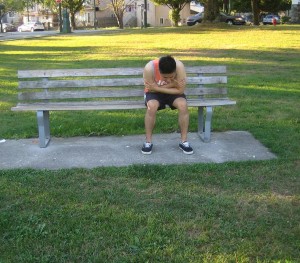The signs of a concussion can be complicated. The indications of brain damage tend to vary based on factors such as the seriousness of the blow to the head and site of the injury.
Some of the symptoms of concussion might manifest right away while others do not show up for days or even weeks. Due to this, it is vital to consider that any head injury has the potential to become a concussion, even if any immediate reactions such as disorientation or dizziness are brief or mild. It is also important to monitor for any symptoms that might arise after the actual injury.
What are the types of signs?
The signs of concussion come in various types.

- Cognitive – difficulty thinking quickly or clearly, difficulty remembering new details, inability to focus or concentrate and confusion
- Physical – blurry vision, headache, nausea or vomiting, dizziness, fatigue, light or noise sensitivity, coordination or balance issues, lethargy, weakness or lack of energy
- Emotional – sadness, unexplained irritability, anxiety, nervousness or generalized tendency to be more emotional than normal
- Sleep-related issues – sleeping longer than normal or less than usual, drowsiness or difficulty falling asleep
When to consult a doctor
Even it might take some time for a concussion to show any signs, some can be evident right away.
In case a blow to the head results to immediate symptoms, regardless of how minor or brief they appear, the individual should stop whatever he/she is doing.
If the individual continues with activity, it increases the risk for another injury that can potentially result to serious complications.
Disclaimer / More Information
The information posted on this page on a concussion is for learning and educational purposes only. To learn how the injury is managed, register for first aid training at one of our training centers located throughout Canada. The training centers are in Edmonton, Calgary, Vancouver, Kelowna, Saskatoon, Victoria, Surrey, Mississauga, Winnipeg, Red Deer, Toronto, Ottawa and Halifax.
